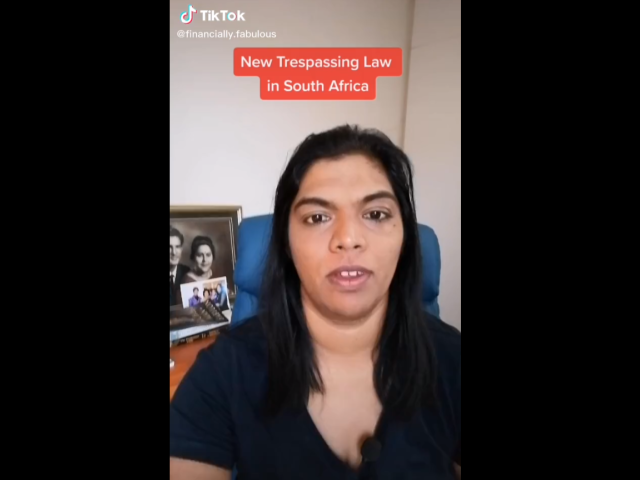A Facebook video claims the new acting chief justice of Nigeria, Ibrahim Tanko Muhammad, is unqualified to practise law.
On 28 January 2019, Facebook user Ifeanyi Baron Okugbo shared a video of a lawyer who can be heard saying President Muhammadu Buhari appointed a sharia court judge as Nigeria’s new acting chief justice.
The lawyer further claims Muhammad did not attend law school and was not called to the Nigerian bar.
“Walter Onnoghen remains the chief justice of Nigeria,” the lawyer says. “The so-called Tanko Muhammad, he is not even a lawyer.”
He continues: “Tanko is a sharia court judge. How can a non-lawyer preside over the supreme court of Nigeria? Who is Tanko Muhammadu, his name is not on the role of the supreme court of Nigeria? He was not called to bar.”
The post has been shared over 170 times so far. “But how did he get to the Supreme Court?” says one commenter. Another writes: “Kai! Buhari must go.”

With Nigeria’s elections set for February 2019, the country’s political scene was further disrupted when Buhari suspended Walter Onnoghen as chief justice while his corruption trial at the Code of Conduct Tribunal runs its course. Onnoghen is facing charges for allegedly failing to fully declare his personal assets before taking office.
Meanwhile, Nigeria’s regulatory body for judges have accused Muhammad of accepting the justice system’s highest position without the approval of the National Judicial Council.
Crosscheck Nigeria recently investigated the video and found that the claims against Muhammad to be false. The report was a collaborative effort between media houses in Nigeria, including Africa Check.
Section 231 of Nigeria’s 1999 constitution (as amended) states that a person shall not be qualified to hold the office of chief justice, or sit on the supreme court, unless they are qualified to practise law in Nigeria.
Then, Section 207 of the country’s Legal Practitioner Act of 1962 states that a person must be called to the Nigerian bar before they can practise as a legal practitioner in Nigeria.
Muhammad's profile, published on the websites of the Supreme Court and the National Judicial Council, says he studied law at Ahmadu Bello University in Zaria from 1976 to 1980 and then at the Nigerian Law School, where he was called to bar in 1981.
“A lawyer cannot become a magistrate if he or she wasn't called to bar,” Monday Ubani, a lawyer and former chair of the Ikeja arm of the Nigerian Bar Association, told Africa Check.
“Claims about him not attending law school or not being called to bar are false.” – Motunrayo Joel (31/01/2019)
On 28 January 2019, Facebook user Ifeanyi Baron Okugbo shared a video of a lawyer who can be heard saying President Muhammadu Buhari appointed a sharia court judge as Nigeria’s new acting chief justice.
The lawyer further claims Muhammad did not attend law school and was not called to the Nigerian bar.
“Walter Onnoghen remains the chief justice of Nigeria,” the lawyer says. “The so-called Tanko Muhammad, he is not even a lawyer.”
He continues: “Tanko is a sharia court judge. How can a non-lawyer preside over the supreme court of Nigeria? Who is Tanko Muhammadu, his name is not on the role of the supreme court of Nigeria? He was not called to bar.”
The post has been shared over 170 times so far. “But how did he get to the Supreme Court?” says one commenter. Another writes: “Kai! Buhari must go.”

Claim a reaction to chief judge sacking
With Nigeria’s elections set for February 2019, the country’s political scene was further disrupted when Buhari suspended Walter Onnoghen as chief justice while his corruption trial at the Code of Conduct Tribunal runs its course. Onnoghen is facing charges for allegedly failing to fully declare his personal assets before taking office.
Meanwhile, Nigeria’s regulatory body for judges have accused Muhammad of accepting the justice system’s highest position without the approval of the National Judicial Council.
What Nigerian law statutes say
Crosscheck Nigeria recently investigated the video and found that the claims against Muhammad to be false. The report was a collaborative effort between media houses in Nigeria, including Africa Check.
Section 231 of Nigeria’s 1999 constitution (as amended) states that a person shall not be qualified to hold the office of chief justice, or sit on the supreme court, unless they are qualified to practise law in Nigeria.
Then, Section 207 of the country’s Legal Practitioner Act of 1962 states that a person must be called to the Nigerian bar before they can practise as a legal practitioner in Nigeria.
Muhammad's profile, published on the websites of the Supreme Court and the National Judicial Council, says he studied law at Ahmadu Bello University in Zaria from 1976 to 1980 and then at the Nigerian Law School, where he was called to bar in 1981.
“A lawyer cannot become a magistrate if he or she wasn't called to bar,” Monday Ubani, a lawyer and former chair of the Ikeja arm of the Nigerian Bar Association, told Africa Check.
“Claims about him not attending law school or not being called to bar are false.” – Motunrayo Joel (31/01/2019)
Republish our content for free
For publishers: what to do if your post is rated false
A fact-checker has rated your Facebook or Instagram post as “false”, “altered”, “partly false” or “missing context”. This could have serious consequences. What do you do?
Click on our guide for the steps you should follow.
Publishers guideAfrica Check teams up with Facebook
Africa Check is a partner in Meta's third-party fact-checking programme to help stop the spread of false information on social media.
The content we rate as “false” will be downgraded on Facebook and Instagram. This means fewer people will see it.
You can also help identify false information on Facebook. This guide explains how.





Add new comment